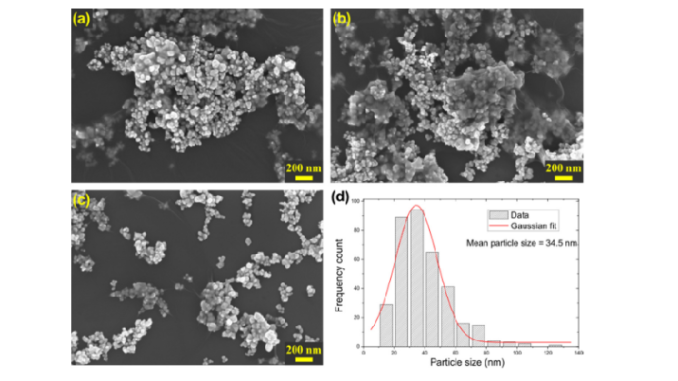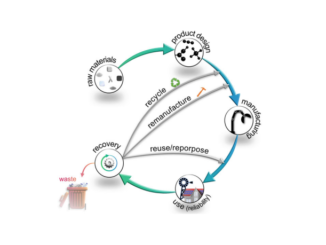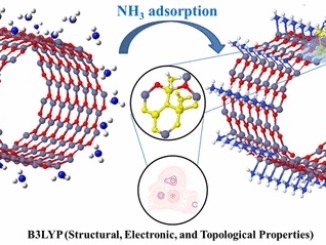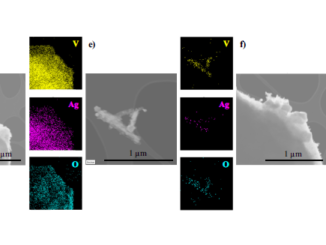
Tunning the Gas Sensing Properties of rGO with In2O3 Nanoparticles
Abstract: Here, we discuss the effect of In2O3 nanoparticles on the reduced graphene oxide (rGO) gas-sensing potentialities. In2O3 nanoparticles were prepared with the polymer precursors method, while the nanocomposites were prepared by mixing an In2O3 nanoparticle suspension with an rGO suspension in different proportions. The gas-sensing performance of our materials was tested by exposing our materials to known concentrations of a target toxic gas in a dry airflow. Our results demonstrate that In2O3 nanoparticles enhance the rGO sensitivity for strong oxidizing species such as O3 and NO2, while a negative effect on its sensitivity for NH3 sensing is observed. Furthermore, our measurements towards H2S suggest that the concentration of In2O3 nanoparticles can induce an uncommon transition from p-type to n-type semiconductor nature when rGO–In2O3 nanocomposites operate at temperatures close to 160 °C.
Author(s): de Lima, B. S.; Komorizono, A. A.; Ndiaye, A. L.; Bernardi, M. I. B.; Brunet, J.; Mastelaro, V. R.
Surfaces
Published: 21 January 2022
DOI: https://doi.org/10.3390/surfaces5010006
CDMF
The CDMF, hosted at the Federal University of São Carlos (UFSCar), is one of the Research, Innovation and Dissemination Centers (RIDC) supported by the São Paulo State Research Support Foundation (Fapesp), and also receives investment from the National Council Scientific and Technological Development (CNPq), from the National Institute of Science and Technology of Materials in Nanotechnology (INCTMN).




